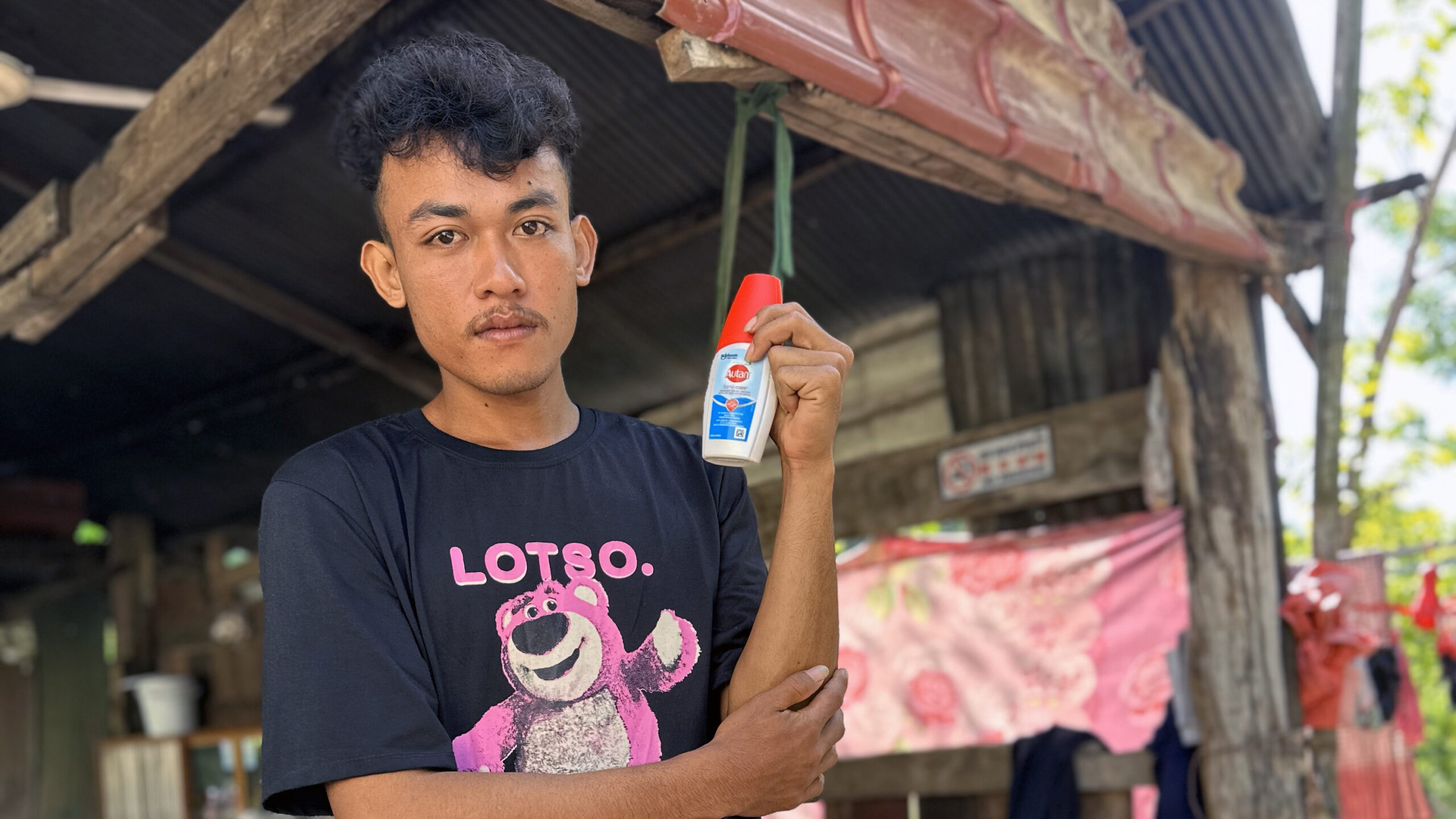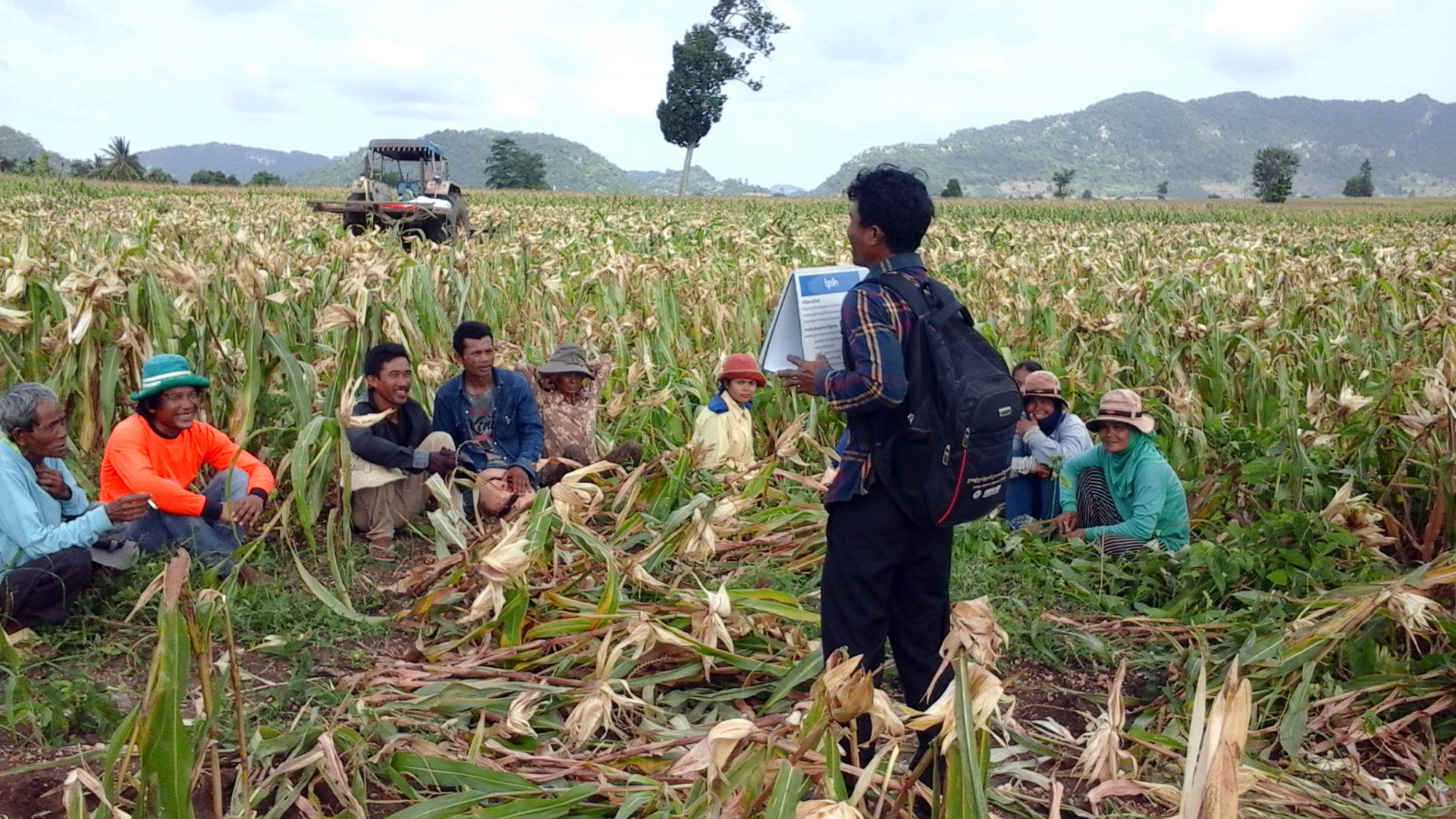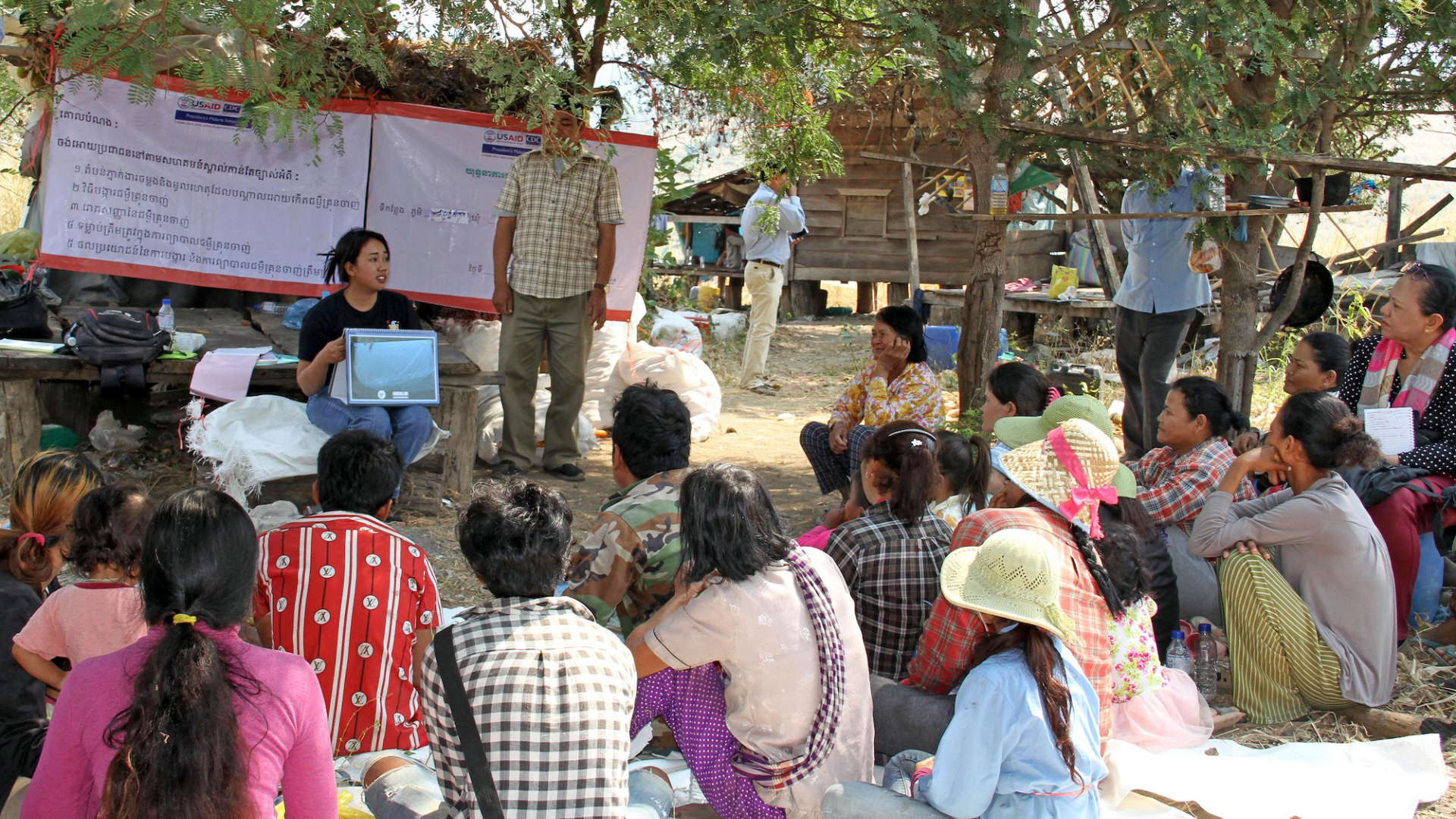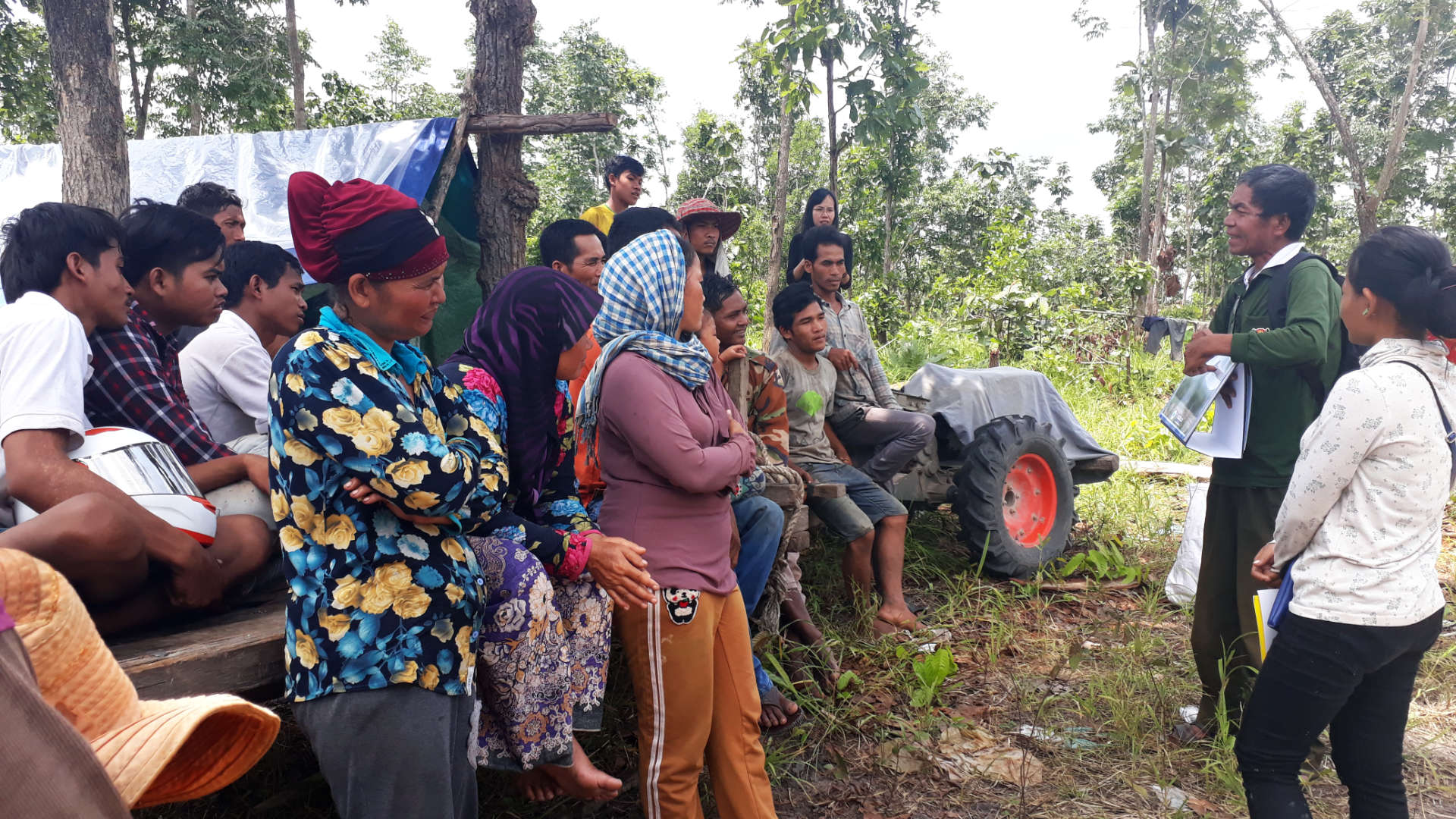Heng Sok Heab, a 25-year-old rice farmer from Battambang Province in Cambodia, works hard to support his family, often supplementing his income with seasonal work.
Unfortunately, while working at a commercial farm in Pursat Province picking oranges in 2022, he fell seriously ill with a high fever.
At first, he sought treatment for his symptoms at a nearby pharmacy, but his fever persisted. Next, he consulted a private clinic. Despite these efforts, his condition worsened.
Eventually, Sok Heab turned to a USAID-supported public referral hospital in Battambang. A health care provider there trained by the USAID Cambodia Malaria Elimination Project 2 (CMEP2) – implemented by URC – diagnosed him with malaria. Following treatment, Sok Heab made a full recovery and went home with advice on how to protect himself from malaria both at home and during work.
Detecting and Treating Every Suspected Malaria Case
Cambodia has made significant strides toward malaria elimination in the last decade. In the last three months of 2023, only 32 out of 30,456 suspected cases were confirmed positive and received treatment in USAID-supported areas.
“Cambodia has not experienced a death from malaria since 2018,” said CMEP2 Chief of Party Jeanne Rideout. “Now we are working toward the elimination of all species of malaria by 2025.”
While malaria cases are rare, reaching and maintaining malaria elimination requires health care providers to identify and treat all instances of malaria. Also, communities must stay well-informed about malaria and practice healthy behaviors.
“Everyone plays a role in this collective effort,” Rideout said.
CMEP2 continues to support the Cambodia National Center for Parasitology, Entomology, and Malaria Control to achieve its goal of eradicating malaria in Cambodia by 2025. This includes malaria blood tests and treatments, education campaigns, and social and behavior change with developing key messages and tools based on the beneficiaries’ needs.
From Malaria Patient to Malaria Prevention Advocate
Empowered by his experience, Sok Heab has become a passionate advocate for preventing malaria and promoting early diagnosis and treatment among fellow farmers and forest goers. He works with public health workers who have knowledge, skills, equipment, and supplies for malaria management.
Sok Heab advises his community to sleep under bed nets, use topical mosquito repellents, and wear long-sleeved shirts and pants whenever they are outside.
“I want to encourage and inform Cambodians who are in the forest and on farms that there is a risk of contracting malaria,” Sok Heab said. “It’s important to protect yourself from malaria and continue sharing this information to others to eliminate malaria.”



